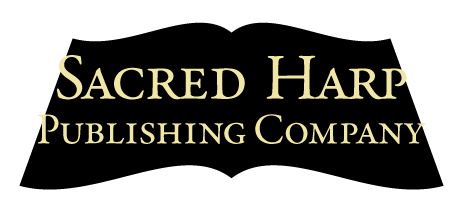Editors’ note: In 1964, Hugh McGraw, then executive secretary of the Sacred Harp Publishing Company, gave a talk on the past, present, and future of Sacred Harp singing for the Harpeth Valley, Tennessee, Sacred Harp singers. His audience included prominent scholars and clergy such as music educator Irving Wolfe and Presbyterian minister Priestley Miller (composer of “The Lamb of God,” on p. 572 in The Sacred Harp). In the following excerpt from his talk, McGraw reflects on the state of Sacred Harp singing in 1964 and addresses common misconceptions about the style.
Criticisms of Sacred Harp Music
There are more singings now than ever before. I would say there are over 375 singings held annually in churches, schools, courthouses, back rooms, and even in cafes (and they are always opened and closed by prayer).
As you all know, this music is not “listener’s music,” it is singer’s music. You have got to sing it to understand it. Quite frequently you hear people say, “it all sounds alike to me,” or “I can’t hear any tune to it.” I shall regard such criticism as simply untrue and the result of pure ignorance. Sacred Harp music is written in four-part harmony and it is composed in such a manner that each part is equally interesting to the singer. And, of course, the melody carries the tune of the song and is the most important.

Hugh McGraw leads a singing school on the National Mall in Washington, D.C. at the 1970 Smithsonian Festival of American Folklife. Photograph by Dick Levine.
The other criticism you hear is “it all sounds like minor.” Well about one half of our songs are minor, and the singer enjoys both major and minor.
You hear people say, “It’s ‘OLD-FOGY.’” Now what does Old Fogy mean? The word “fogy” means a steward or caretaker, and the word “old” was a tried and trusted one who took care of such things as were worth preserving, and certainly what we are doing to The Sacred Harp is preserving it. When we speak of Old Fogy things we might as well include, for instance, the language we speak, the clothes we wear, the food we eat, the houses we live in, the laws we obey, and last but not least, the God we worship. Now what could be more old fogy than these things I have just named? But brother, I don’t want to do without any of them, and I guess I will just die “old fogy.”
All I can say about Sacred Harp music could be summed up in a few words. Uncle Tom Denson once said, “If you don’t like it, you had better stay away from it, because it will get hold of you and you can’t get away.”
Singers Today
I would say that there are 10,000 singers in the Southern states and more joining in every year. I would say that 50,000 Sacred Harp song books have been sold in the last fifty years and I would predict that the next fifty years will see 100,000 sold.
With these modern-time people, they don’t think anything about going 500 to 600 miles to an all day singing. They have new cars; some go by airplane, trains. That is a vast improvement over the horse and buggy days. I have heard some of the older people say that sometimes it would take a week to get to a singing and a week to get back.
However, the old tradition is still carried on just like our grandfathers carried it on before us, and I don’t think that will ever change. Anything that is good enough to last 120 years will last forever.
People have made the remark that Sacred Harp singings are dying out. That is an untrue statement. There are more people singing today than ever before. More singing schools are taught each year. More young people are starting out learning to sing the music, and you know yourself that anything that the young people do and enjoy is certainly something that will go on and on.
I would like to encourage more young people to start singing, because there is no greater entertainment than a sweet song. I don’t just promote Sacred Harp music—any music is enjoyable and soothing to the ear. Music will never, never, never die.


Would like to meet Hugh McGraw or hear from him some day!
You should definitely come sing with Hugh McGraw here in Georgia. He is getting up in age but is still a regular presence at West Georgia singings!